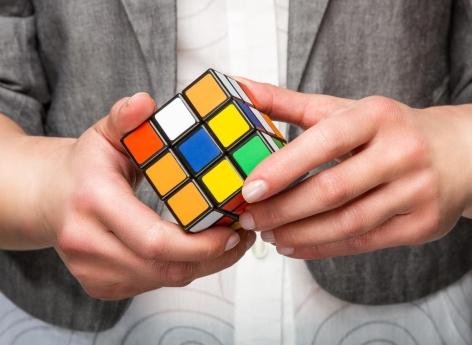If it can drive some people crazy, the Rubik’s Cube is a great vector of well-being for others. Jules Desjardin, French champion of “Speedcubing”, explains to us all that brings him this booming discipline consisting in solving the multicolored square as quickly as possible.

– Better Living Health: How did this passion for the Rubik’s Cube come to you?
Jules Desjardin – Following a math contest, I won a Rubik’s Cube and a little booklet explaining how it worked. I then started to learn different techniques via the Francocube site, then I followed quite naturally with the competitions.
– You are now 28 years old. When your interest in Rubik’s Cube did he show up?
I started training in college and did my first competitions in high school.
– How and how long do you train at speedcubing ?
About an hour a day. Concretely, I train by watching Netflix or Youtube videos, because it can be a bit daunting to do nothing but cube for so long.
– You are an electronics engineer. What qualities must one have to appreciate the speedcubing do you think?
I would say that you first need good hand dexterity (for example, I took 10 years of piano lessons), a great capacity for learning and a lot of training. You also need to have a good visualization of the space and a certain intuition to guess how the pieces will move.
On the other hand, contrary to what certain clichés convey, it is not necessary to be good in mathematics to be able to perform in Speedcubing, nor to have a very great capacity for reflection.
– What does this discipline bring you in terms of well-being?
I met my wife in this environment three years ago, so I would already say that this discipline has brought me love. I also appreciate the very social side of the Rubik’s Cube, because I made many friends thanks to this universe. There is also something gratifying in the fact of constantly progressing, of going faster and faster.
Finally, I would say that doing the cube allows me to relax and eliminate stress.
– What do you particularly like about competitions? speedcubing ?
The competitions led me to visit many countries of the world (Brazil, Thailand, United States, Australia, New Zealand…), which is very pleasant.
I also appreciate the benevolent atmosphere that reigns in this kind of event: there is no elitism or judgment, we rejoice every time someone beats their own record.
– Do Can Rubik’s Cube become addictive?
Yes, it’s very addictive, because we’re constantly trying to beat our timer.
– After a first world championship in 1982, the competitions of Rubik’s Cube were relaunched in 2003. Have you noticed any change in the Speedcubing since you started?
Yes. Popularized via social networks, this discipline has been gaining more and more followers for 5 years, especially among pre-teens.
– How do you see yourself in the future?
I do not know at all. As long as my friends are doing competitions, I think I will continue to do and organize them with them. But maybe this passion will eventually pass me after a while.















